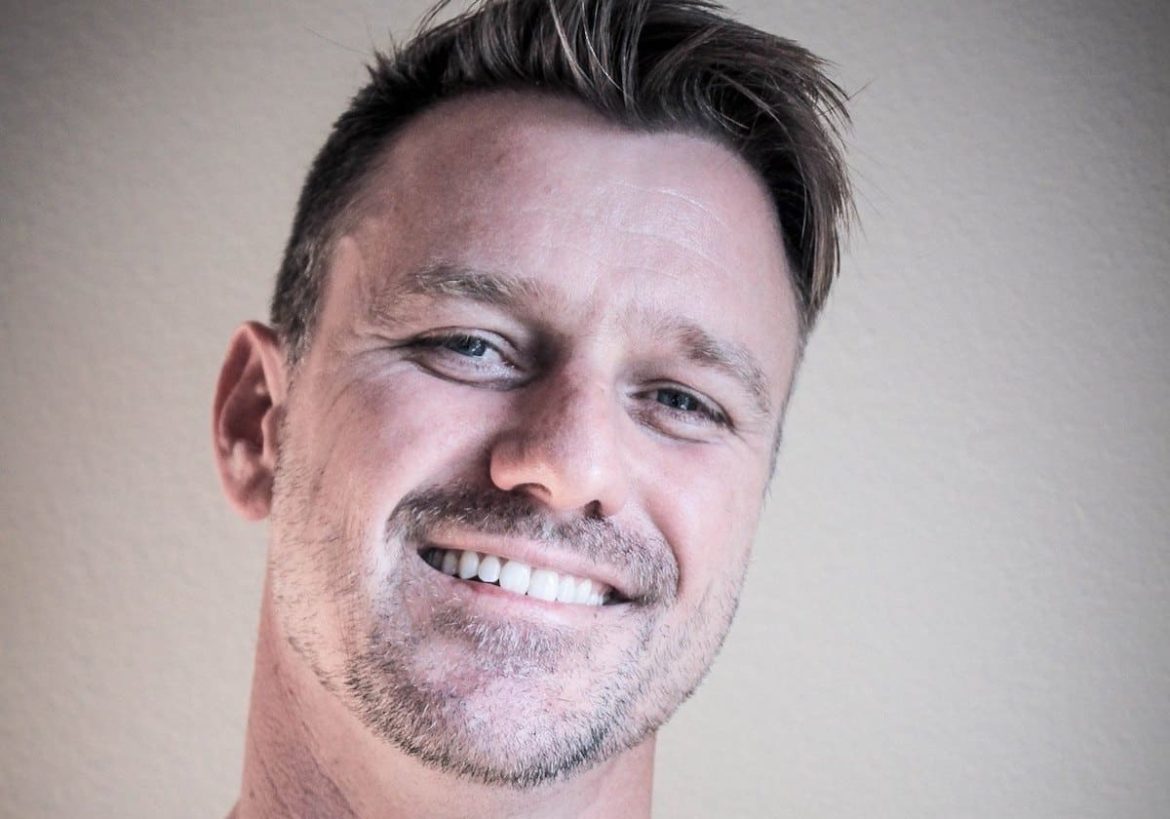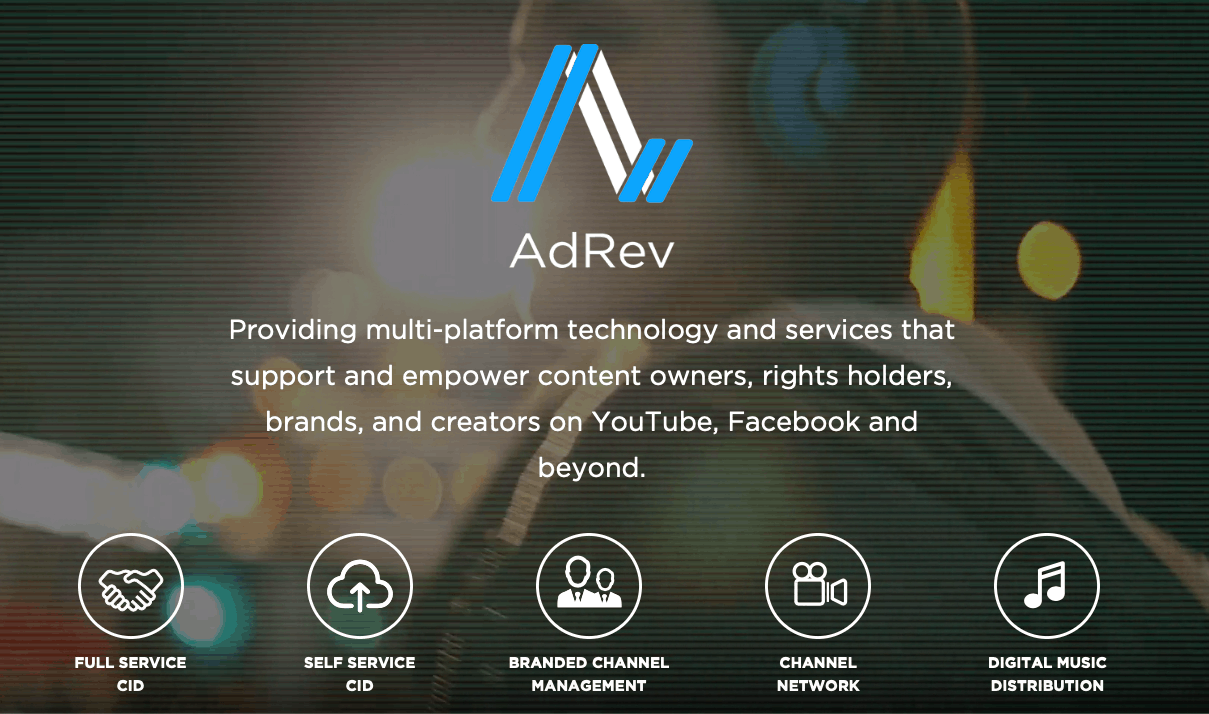Noah Becker serves as President at AdRev – a global leader in YouTube and UGC monetization, administration and strategy, music distribution, and proprietary music and media software development. He also has a diverse background as both a longtime composer/producer, and music industry insider, and has a deep passion and concern for the vitality of the creative class.
We recently chatted to Noah about the services AdRev provides its clients as well as his opinions on some of the wider issues in the music industry and technology ecosystem…
What Services do Ad Rev provide and to what types of clients?
AdRev is a B2B and B2C administrative and strategy service, operating primarily within YouTube’s ecosystem, helping clients and creators maximize their potential on YouTube, whether from content ID, channel strategy, or a combination of the two.
We also offer custom SaaS solutions for music and media clients for asset management, copyright protection, tracking, etc.
At a kernel level, we are a technologically empowered music and media services provider.
How do you monitor YouTube so effectively?
We have over 20 people in Los Angeles dedicated to our YouTube offering, as well as 7 full stack developers in Europe. This scale allows us to manage a broad swath of rights and clients with a high degree of efficacy, through intelligent integration of both highly technological, and more manual / human-based efforts.
What sort of incremental revenue do you bring your clients?
Generally speaking, we do not bring incremental revenue, we bring explosive revenue. But safe to say a music publisher or label with relatively high velocity (i.e. popular) music rights, will see anywhere from a 25%-300% increase in their YouTube revenue within the first couple quarters of us working together. The timeline of that increase, and the variance in range of % increase will be driven primarily by the level of focus the new client had on the account prior to our arrival, and if that focus also included personnel who are YouTube certified / and or have a high level of knowledge of the intricacies of YouTube’s robust copyright management system.
“A music publisher or label with relatively high velocity (i.e. popular) music rights, will see anywhere from a 25%-300% increase in their YouTube revenue within the first couple quarters of us working together.”
You are owned by CD Baby, how does that work?
We’re the B2B side of the AVL Digital (parent to CD Baby) family of companies and AVL Digital was recently acquired by Downtown Music Holdings. We work collaboratively on global sales and business development efforts, marketing, event sponsorship, and potential acquisition targets.
CD Baby has its roots in B2C, where our roots are more B2B, so we complement each other incredibly well and are able to prospect potential new partners and BD on a holistic level, without a worry of “are we B2B or B2C enough to add value for this partner”. We have the right fit for any size and scale media or music IP owner.
Furthermore, I think Tracy Maddux (CEO AVL Digital/CD Baby) and I share a common set of core values – treat your personnel incredibly well, incentivize work ethic, integrity, honesty, transparency. And of course, take all of those values downstream to your partners and clients, and industry wide.
You also have DashGo – what are your views on how distribution is changing and the new players involved?
I think distributors have, and always will, exist for a reason – scale and efficiency. I’ll leave the rest of how I might expound on this up to your imagination.
What companies/technologies are you currently interested in and think have a bright future?
Well I don’t want to tip my hat too much since I may be interested in acquiring some of the specific entities I might otherwise mention, but I think big data, fingerprint driven analytics, technology that increases transparency, efficacy, and accuracy of royalty payments (be they PRO, neighboring rights etc). That is where people should be focused in terms of maximizing revenue from their coveted rights.
The music industry has long been seen as a place with many snakes in the grass, people out to “get you” or “take advantage of you” but thankfully, we have an ability to work with technology to empower creators, publishers, and labels, to do “the right thing”, and furthermore, when maybe some of those people don’t want to do “the right thing”, we can lean into technology to force them to stay honest.
I see a potentially very bright future music industry and economy where [for the most part], people are paid fairly, accurately, and timely, for all of the rights embedded in their assets, not just sales, or performance, or neighboring, etc., but every revenue bearing aspect of a music asset is realized in a timely manner. What an amazing world that will be.
So any tech that lends a hand in the aforementioned that is real, and not vapor, is something worth exploring.
“I see a potentially very bright future music industry and economy where [for the most part], people are paid fairly, accurately, and timely, for all of the rights embedded in their assets, not just sales, or performance, or neighboring, etc., but every revenue bearing aspect of a music asset is realized in a timely manner. What an amazing world that will be.”
What are your thoughts on how new legislation, such as Article 13 in the EU and the MMA in the US, will impact the industry moving forward?
I have reasonably high hopes that in the long-term these big moves will force people to get honest and stay honest. If I write a blog post that gets great traction, and it is reposted on a more popular blog that has in-house ad sales and pockets big dollars from these reposts, and I am not compensated in any way, that is theft and needs to be stopped.
Will there ever be a Global Rights Database?
See above! And I am assuming I am being baited here since I made a pretty heavy-handed comment about this in London at Music Ally’s wonderful NY:LON conference.
I do not think it is possible, or realistic, even in long-term in terms of long-term being for example, something I will see in my lifetime (I am 40). Maybe one day when the robots take over and we’re long gone?
When you start to talk “global”, you also have to talk “historical”. Then you have to consider the stakeholders, the level of competition at a commercial level, data coveting / protection, etc.
But, let’s say it IS possible – my comment made on the NY:LON panel was meant to stoke the flames for various rights holders to get their own data in order, and not rest easy on some thought that a GRD will save them in the future.
What are your goals for the future of AdRev?
To leverage this incredible team and tech stack we have built to provide more solutions for the music and media industry in search, SaaS, discovery, protection, revenue expansion and protection, etc. Our tech team is par excellence, and always growing. Our service staff is world renowned for rapid responses, a great attitude, and a high degree of efficacy in solving client needs. We want to expound on this ethos and take it “off platform” – YouTube will always be our flagship platform to work, but we want to create a more diverse portfolio of services and technologies through M and A, new tech builds, and smart JVs with other non competitive technology providers.
In the long run, I want to continue to provide jobs, a healthy home for our team members, and foster creativity and empathy in our work environment, while providing best in class service and technology for our amazing and ever expanding client base.
I would love for AdRev to remain steadfast in the industry long after I have made my journey to the other side…that’s the real goal – Build something that is ultimately sustainable, and that will be a stalwart for honesty, transparency, and service and technological prowess for the music and media industry for many many years to come!
Enjoyed this post? Check out A Conversation with Exactuals’ Head of Music Product Chris McMurtry

